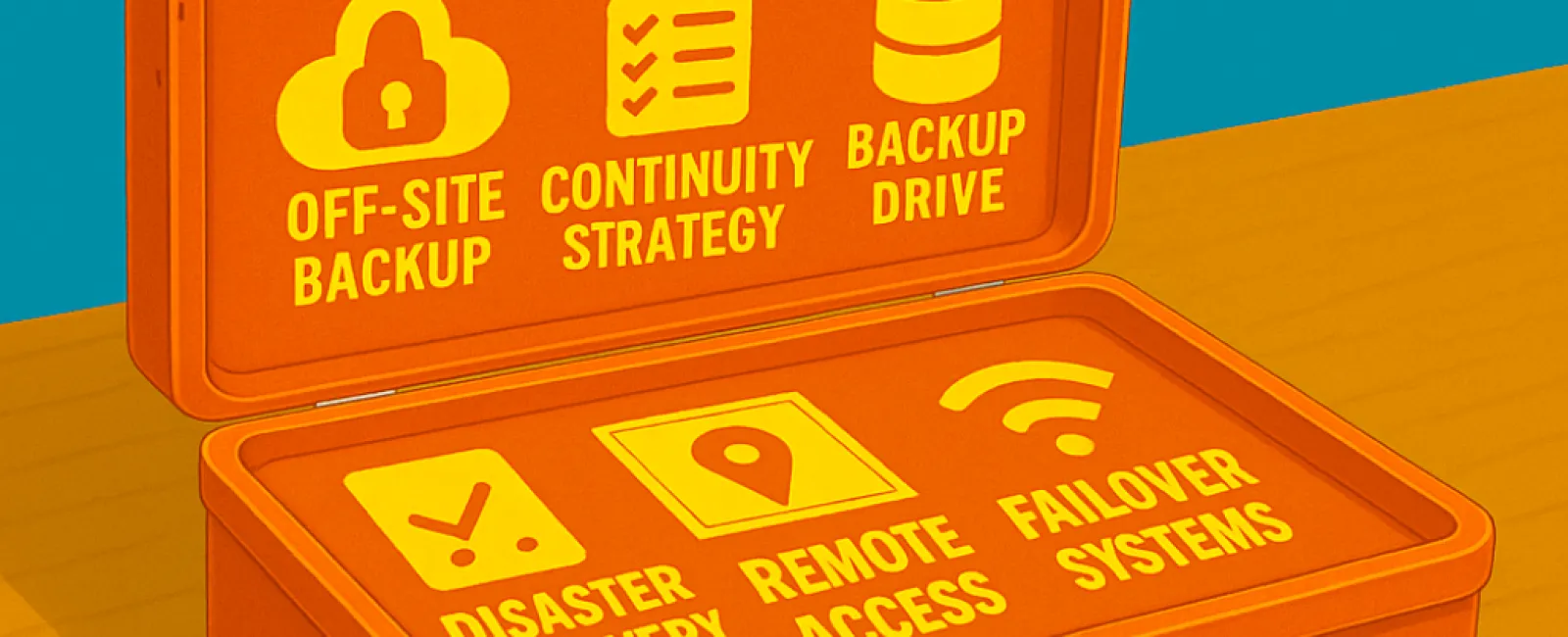July 28, 2025
Unexpected events like power failures, cyberattacks, hardware malfunctions, and natural disasters can strike without warning, causing severe disruptions for small businesses. Many believe that having backups is sufficient, but restoring a file is only part of the solution. Without the ability to access critical systems, support remote work, and keep communication flowing with your team and clients, even brief interruptions can lead to long-lasting damage. A dependable IT partner should equip you with more than just backups—they should deliver a comprehensive strategy to maintain business operations under any circumstance.
Backups Alone Won't Cut It — You Need a Robust Continuity Strategy
Backups are undeniably crucial, but they represent only a fraction of what's necessary. What truly safeguards your business is a proactive business continuity plan designed to keep your operations running smoothly during and after a crisis.
When systems fail, files are unreachable, or your workplace becomes inaccessible, a backup stored locally offers limited help. Without a well-defined plan to swiftly resume operations, your business faces significant risks including revenue loss, reputational harm, and regulatory non-compliance.
Understanding the Critical Difference: Backups vs. Business Continuity
Many businesses mistakenly rely solely on backups:
●
Backups allow for data restoration.
●
Continuity ensures uninterrupted operations regardless of disruptions.
A comprehensive continuity plan addresses essential questions such as:
●
What is our recovery time objective?
●
Where will employees work if the office is unusable?
●
Which systems are critical for business survival?
●
Who is responsible for activating the recovery procedures?
Key elements of a strong continuity plan include:
●
Encrypted, off-site, and immutable backups for maximum data protection
●
Clearly defined recovery time and point objectives (RTO/RPO)
●
Preparedness for remote work scenarios
●
Redundant infrastructure and automatic failover systems
●
Regular testing through disaster simulation drills
If your IT provider can't confidently guide you through these critical aspects, it's not protection—they're just hoping for the best.
Is This Really a Threat to Your Business?
This isn't a scare tactic—it's a reality. Disasters happen with serious consequences. Recently:
●
Florida hurricanes forced hundreds of businesses to halt operations, especially those without cloud-based access.
●
North Carolina floods wiped out on-site servers, destroying months of vital records.
●
California wildfires razed entire offices in Pacific Palisades, many lacking off-site recovery plans.
●
Numerous small businesses hit by ransomware attacks have painfully discovered their backups were either corrupted or never tested.
Disasters don't discriminate by company size—they impact businesses like yours every day.
Ask Yourself These Critical Questions Today
If disaster struck tomorrow, could your business keep running?
Pose these questions to your IT provider:
●
How quickly can we recover from a ransomware attack?
●
Are backups regularly tested and which systems do they cover?
●
What's the contingency plan if a flood or fire destroys our office?
●
Does our continuity plan comply with industry standards and regulations?
●
Can we continue serving clients if our team must work remotely?
If you're not completely confident in these answers, your business may already be exposed to significant risks.
Disasters Are Inevitable. Downtime Isn't.
While you can't prevent every power outage, storm, or cyberattack, you can control how your business responds and recovers.
An effective IT partner helps you bounce back.
An exceptional one ensures your business never misses a beat.
Ready to evaluate your business's preparedness?
Click Here or call us at 281-367-8253 to schedule your FREE 15-Minute Discovery Call, and let's ensure a disaster never becomes downtime.





